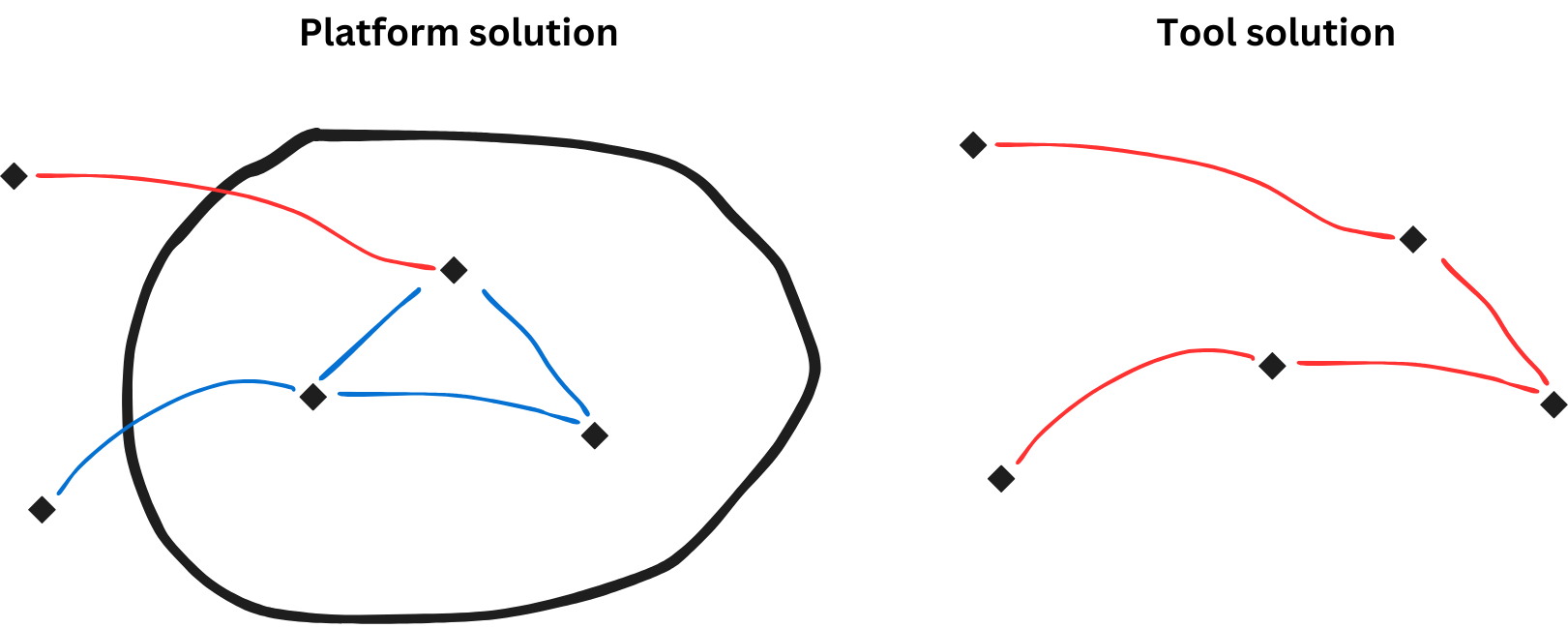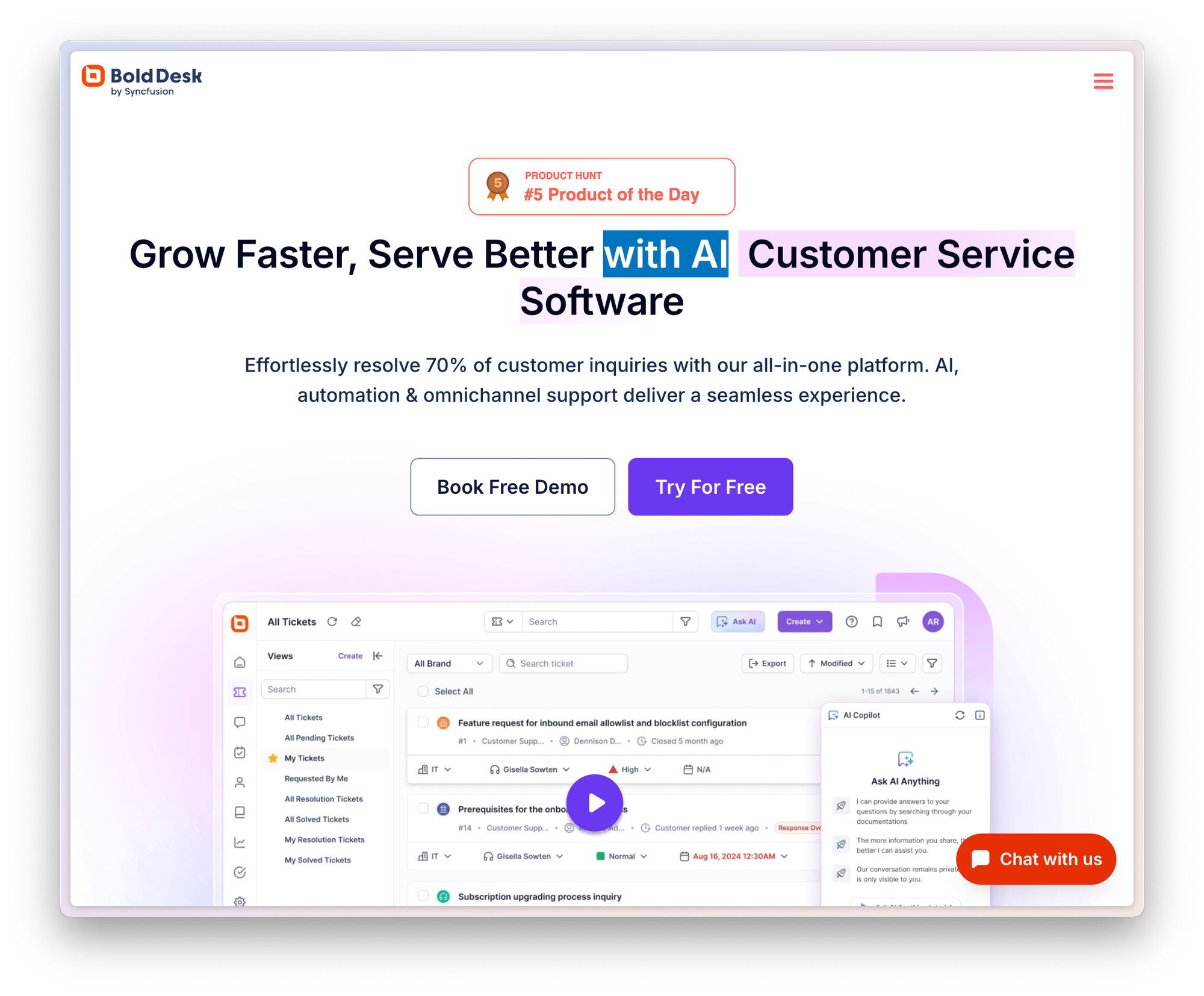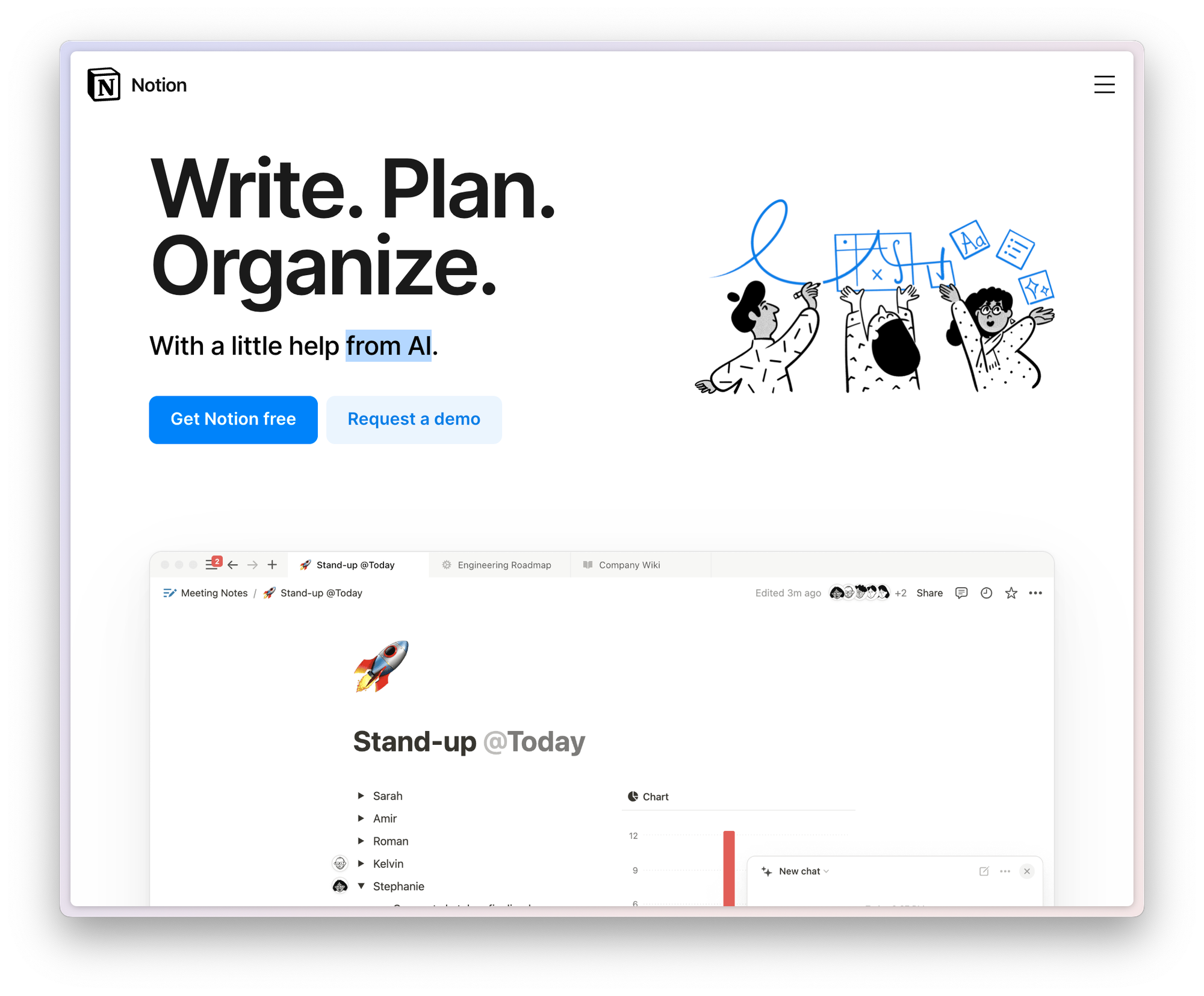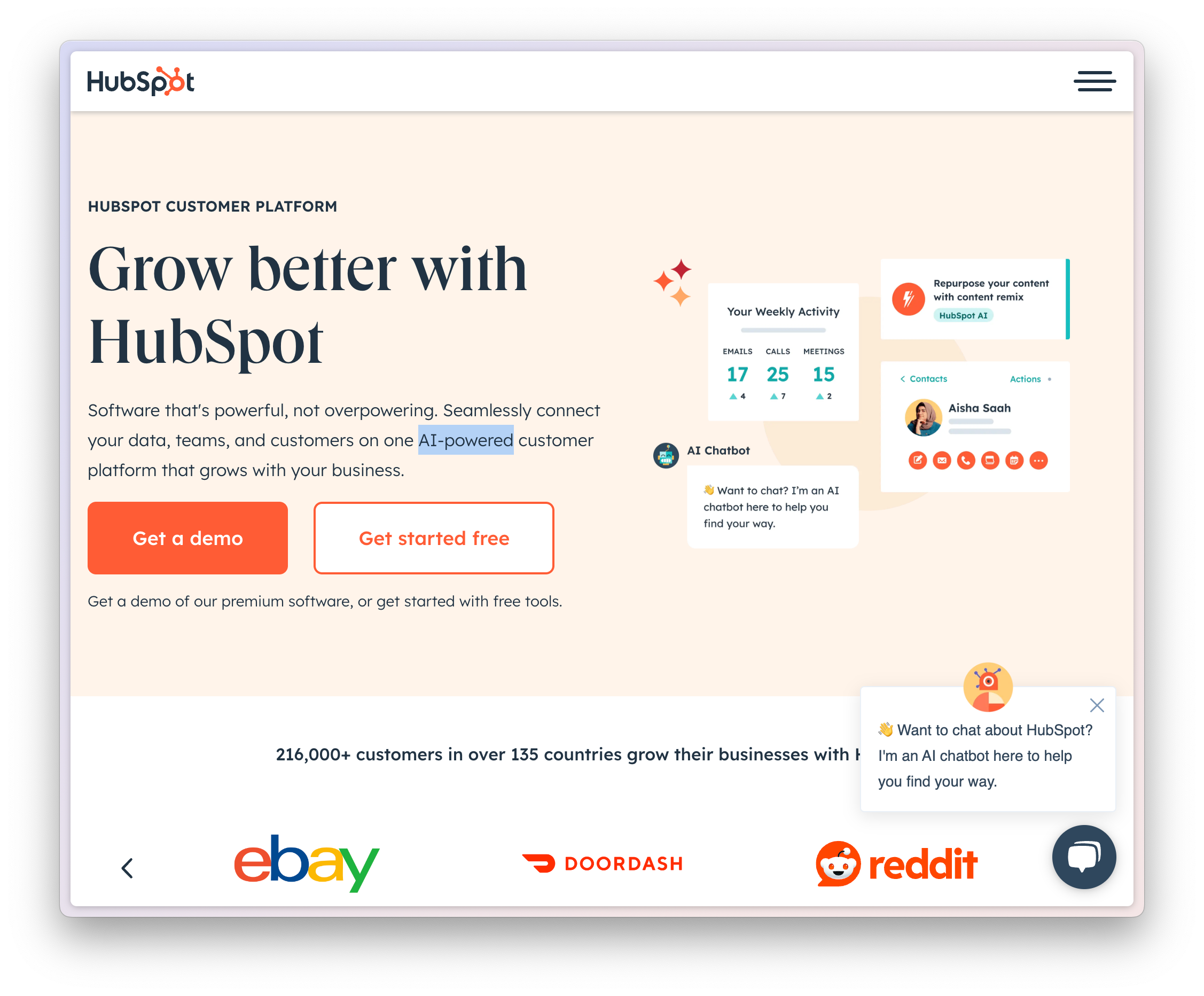AI replaces SaaS platforms with tools
AI made natural language, pictures, audio, and video suddenly an open protocol for machines. Thus many problems that were previously only solvable via coordination are now solvable for individuals.

Why I am bullish on AI tools.
When AI was getting started, every SaaS platform vendor scrambled to add "with AI" somewhere in their hero section. And while most marketing websites have toned down significantly on AI promises since then, the "with AI" theme is still a thing on many platforms websites:



I don't want to talk about how good or bad those platforms make use of AI. My day-to-day AI usage comes in the form of an LLM integration into my IDE and a browser with a chat window so I am not an expert on any single platform's AI features.
What I do want to talk about, is a hypothesis I have that touches on platforms and AI: While most platforms are now AI-enabled and the next hectocorn is most likely building a platform with AI-native features built-in as I write this, I believe that AI-native tools reduce the need for platforms in enterprise SaaS. I use the word tool here in the sense the Unix philosophy defines a program: A tool does one thing well. In contrast to this, platforms are designed to do multiple things. With AI-native I mean tools that couldn't exist without recent advances made in AI.
Why should we care about tools and platforms, though? Aren't platforms that solve all the problems nice? Well, maybe, but...
Platforms are expensive
Platforms solve multiple problems. But this comes at a cost. I see two key reasons why platforms are more expensive than buying a bundle of tools:
- With any two platforms, even if they target related problem spaces, you never get a one-to-one feature mapping between two platforms. With higher differentiation comes a weaker negotiation position for platform buyers.
- The more you have invested in a platform, the harder it is to switch. Switching costs depend on the number of business processes that are dependent on a platform and how many people are using a platform. This weakens the negotiation position for existing customers of a platform.
The general promise of a platform is, that the benefit of buying an integrated bundle outweighs these risks. In some cases, the benefit of buying a platform is even more pronounced; some problems can only be solved by platforms.
Coordination problems can only be solved by platforms
The most common category of problems that can only be solved by platforms are coordination problems between people. Platforms help with coordination problems because they allow you to centralise decision making over how to work together. If you buy HubSpot, you introduce a common language around customers and interaction with customers, and you can enforce how your sales and marketing departments work in that domain. You also make this domain more legible which is required for central control of a system.
More powerful individuals mean less coordination
Even complex problem domains can be decomposed into problems that can be tackled by tools. The key for this are protocols. Where platforms come with their own domain model and keep an internal state, tools rely on shared state exchange. By using open protocols, tools can focus on solving a subproblem that plays a role in a larger domain.

AI made natural language, pictures, audio, and video suddenly an open protocol for machines. Thus many problems that were previously only solvable via coordination are now solvable for individuals with the help of more powerful tools.
Tools that embed into existing workflows are the most promising
What makes tools in general successful, also holds for AI-native tools:
- You can trigger them from or embed them into your existing workflow instead of introducing yet another interface you have to work in.
- They are easy to try out. Where you would have to migrate data to make use of a new platform, AI tools can be tried out with little overhead in your existing environment and just as easily switched off again.
In addition changes made by AI-native tools must be 100% auditable and critical changes can only happen after approval. This is a learning from the last 30 years of software development.
Notice that you get the trigger and audit for free if an AI-tool hooks into an existing git + pull request workflow.
I am building a tool that competes with documentation platforms
The reason I thought a bit more about this in the past days and weeks is that I have started working full-time on my startup: Docsy.
If you are working in software development or product, I would love to hear what you think about it!

Update 2025-01-17: Found this great read on following the Unix philosophie for SaaS platforms: https://keygen.sh/blog/good-saas-products-are-like-unix-tools/. Favorite quote: "Webhooks are like the | operator of SaaS."
